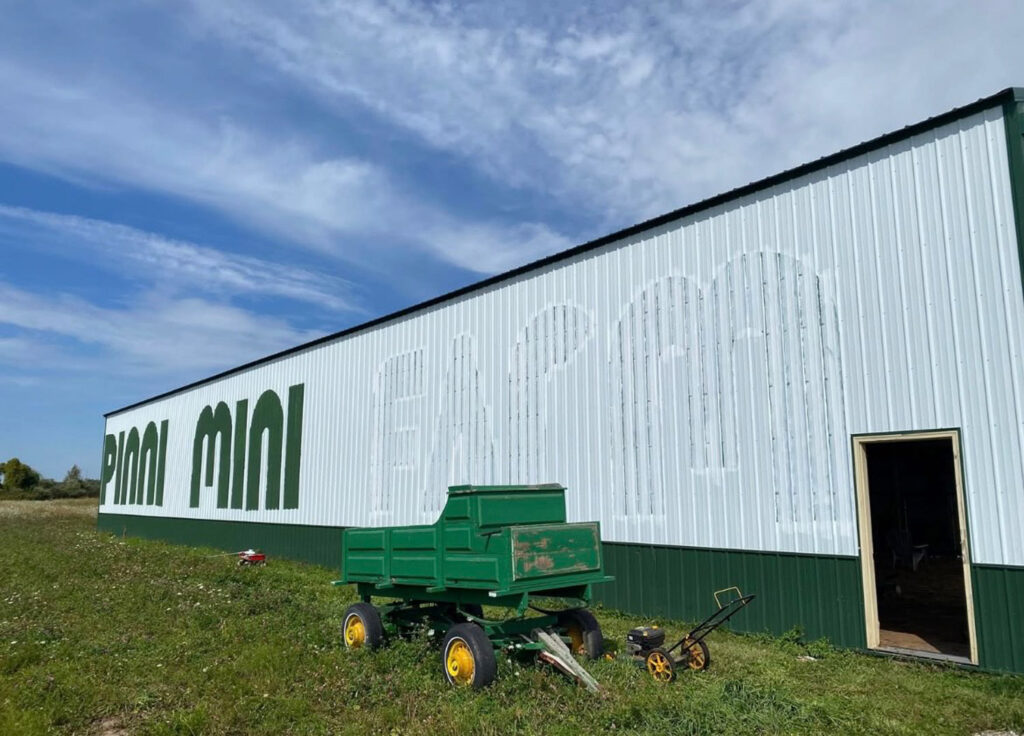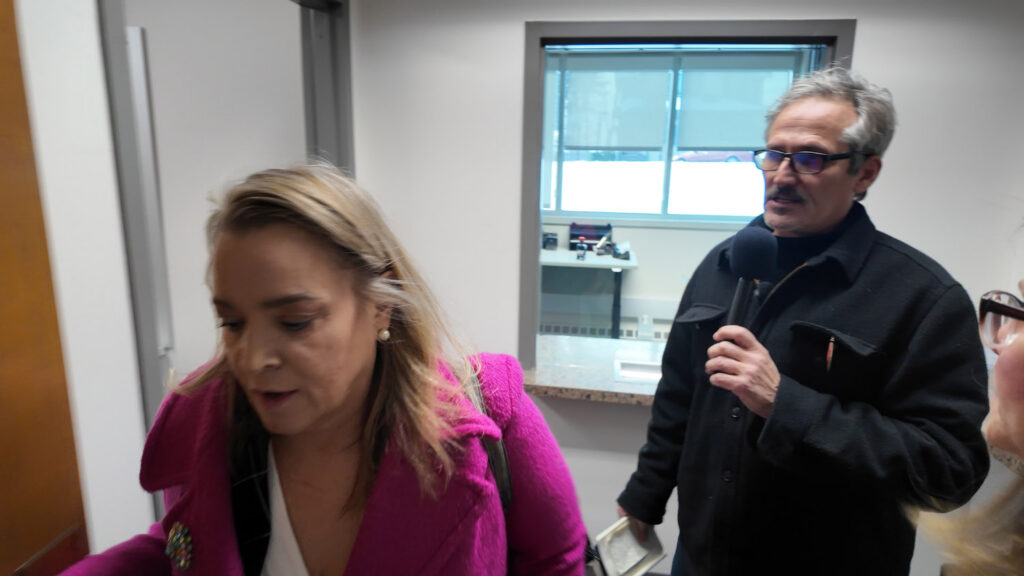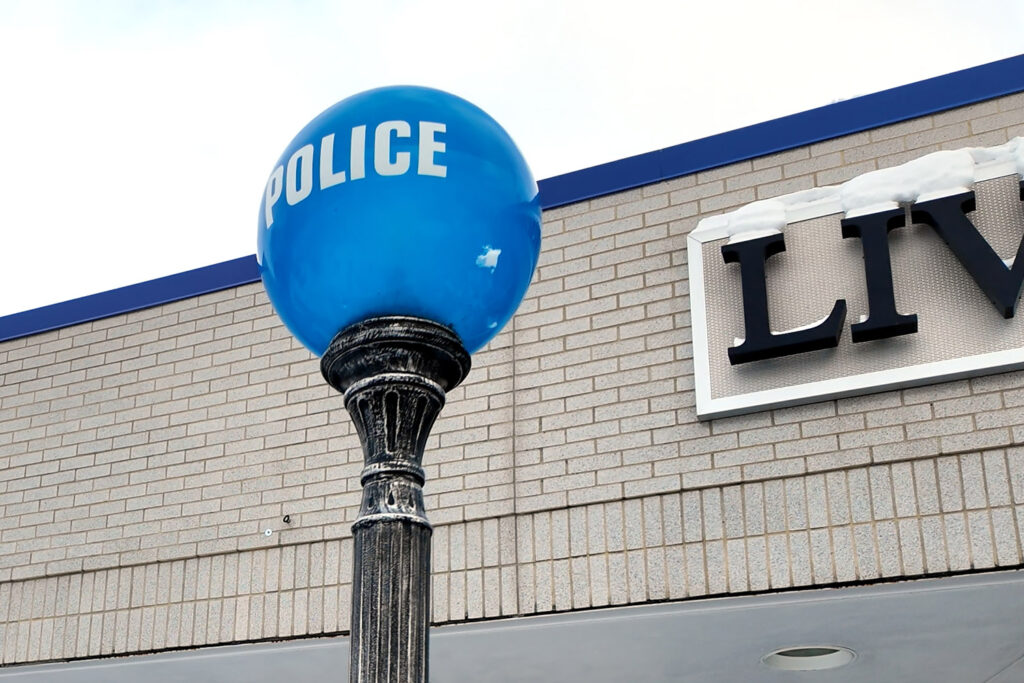Pinconning Township — What happens when a small-town farm tries to market itself and the local government says no? In Pinconning Township, that question has ignited a quiet controversy.
On a quiet stretch of Townline Road in Pinconning Township, the words “PINNI MINI FARM” were once painted in bold green letters on the side of a large white barn. No flashy graphics, no promotions, no politics, just a hand-painted identifier on the wall of a barn.
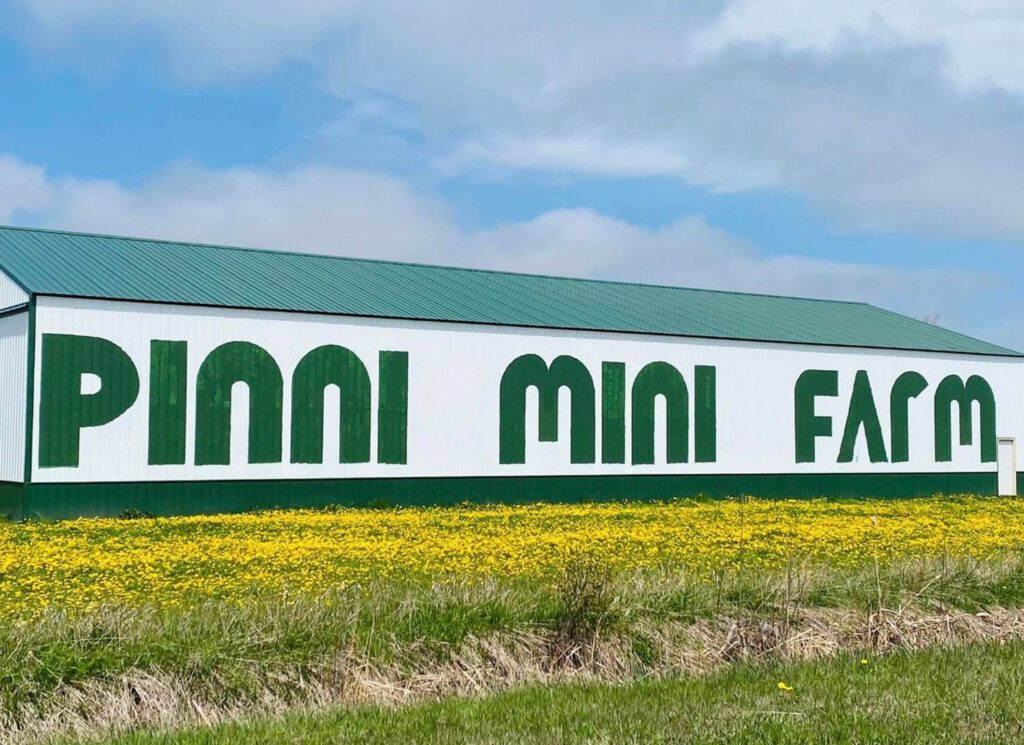
But now, that paint is gone, ordered erased by township zoning enforcement. The reason? It didn’t conform to local ordinance. The farm’s owners were told the painted words exceeded the allowable square footage for a wall sign and were applied without a permit.
In response, Dean Oswald—co-owner of the farm—took to Facebook:
“This is what government overreach looks like. This is what anti free speech looks like. This is what bureaucratic harassment looks like. You can’t do what you want on your own land anymore, even when it harms no one and brings people to the community.”
The post spread quickly. And the public agreed.
The barn’s painted label violated Section 13 of the township’s zoning ordinance, which governs signage size, placement, and permitting. Because it was a painted-on wall sign that exceeded the maximum square footage allowed without a permit, the township considered it noncompliant. The Oswalds requested a variance, which required a $250 application, but the Zoning Board of Appeals denied it.
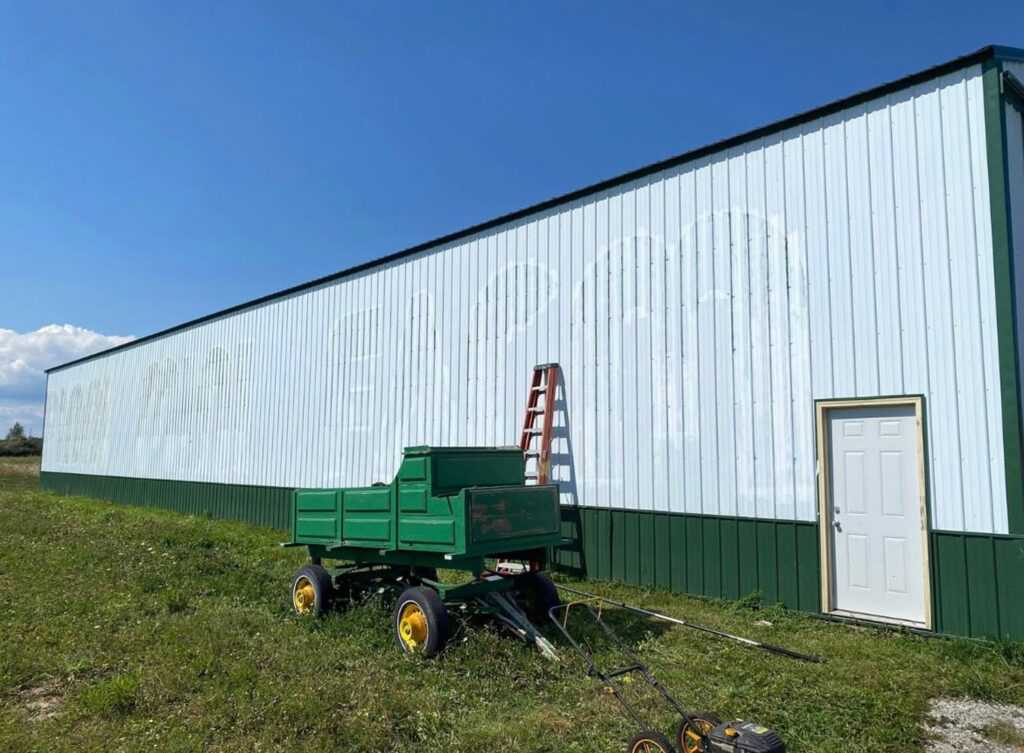
That decision means the barn—which once had character, clarity, and identity—now sits with a whitewashed shadow of its old self, a ghost imprint where the green letters once proudly declared the farm’s name.
“It was a landmark,” wrote Anne Wackerle. “I used it to know how far I was from home.”
Others echoed her sentiment. “It helped us find the farm,” commented Becky Sprague-Markiecki. “We didn’t know the area well.” Another visitor said, “Every time I saw your sign, I thought of your cows.”
Let’s be clear: Townships have zoning rules for a reason. They help keep roads safe, neighborhoods clean, and environments livable. But when a rule ends up censoring something this innocuous, the question has to be asked: What exactly is being protected?
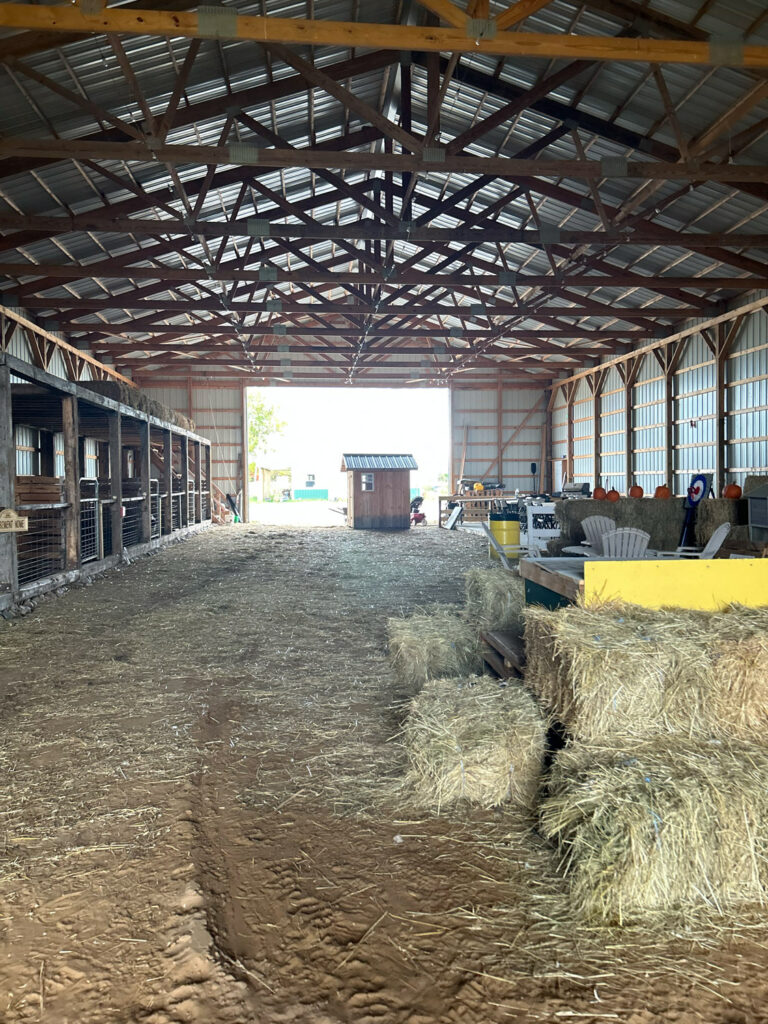
It wasn’t aesthetics. Most of the building was white-and-green steel siding, a classic farm construction. The bold green letters weren’t offensive or gaudy. In fact, the township newsletter even encourages local beautification and tourism.
And it wasn’t safety, because the sign wasn’t illuminated or near any road that would make it a hazard.
What we’re left with is regulation for regulation’s sake. The cost of that? Trust, participation, and goodwill.
What happens when common sense gets buried in red tape? You get stories like this.
According to Stephanie Havercamp, the township’s staff actually supported keeping the sign. But once the variance hit the approval board, it was struck down. That board, according to township documents, is the final authority in these matters.
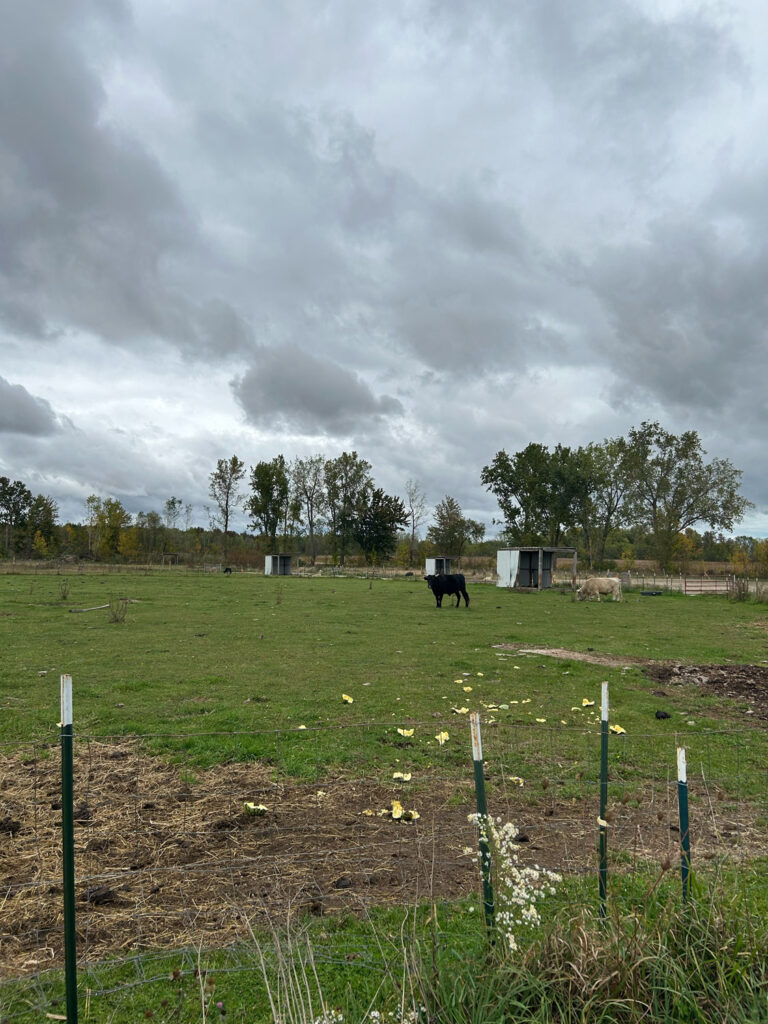
“They would have had to go to court to fight it,” Havercamp said. “I was the only person at one of the meetings. No one shows up. And then this is what happens.”
She’s not alone. She’s also dealing with township restrictions trying to prevent her from parking a camper in her yard.
“It’s all about money,” she said. “Permits, applications, variance fees… just to do anything in your yard.”
In a rural community like this, where pride of property and self-sufficiency runs deep, it’s hard to understand how we got here.
Dozens of commenters rallied to the Oswalds’ defense. A few examples:
“It’s your property.”
“Don’t listen to those Jack wagons”
“Bullshit, Pinconning!”
“That’s BS, repaint it and stand your ground.”
Others offered alternative strategies: obtaining a billboard license, petitioning the township, or even protesting. For many, the removal of the sign wasn’t just bureaucratic nitpicking. It was symbolic of how institutions prioritize regulations over reason and paperwork over people.
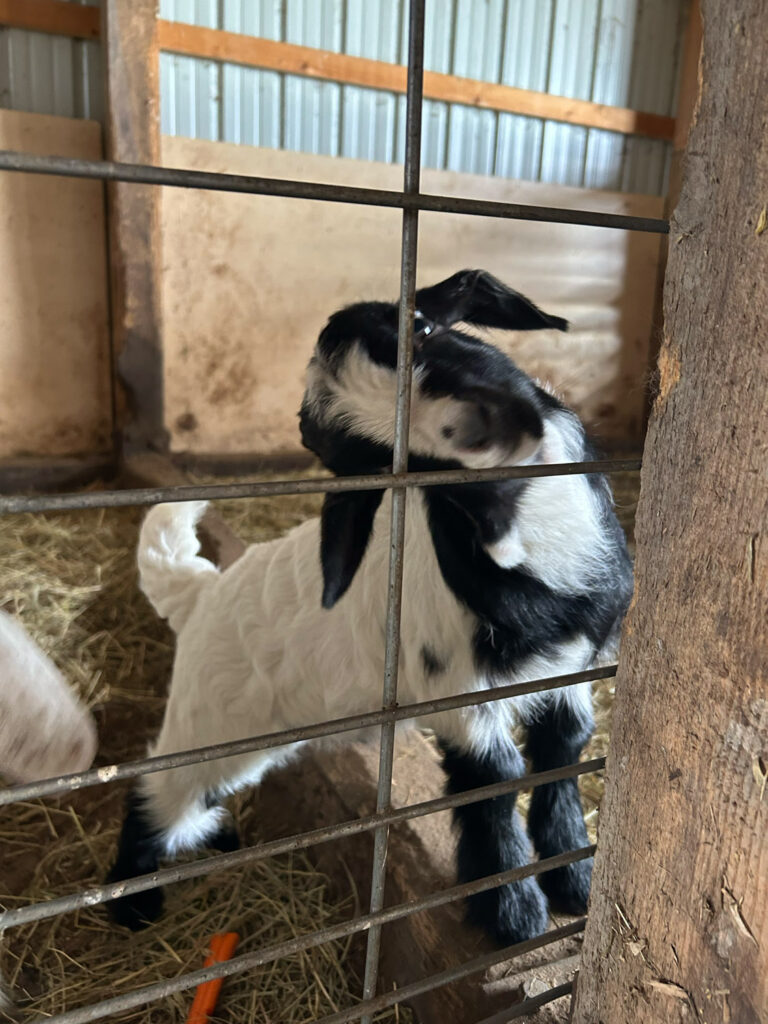
The lesson might be this: If you don’t go to the meetings, someone else makes the decisions for you. Zoning boards aren’t flashy, but they control what your town looks like and what your neighbors are allowed to do. Sometimes, they even decide whether you’re allowed to paint your barn with its own name.
People often tune out local governance until it directly affects them. But the Oswalds’ story is a reminder: Silence is permission. These boards wield real power. They can erase your barn sign. They can restrict your fence, your camper, your bees.
If this story frustrates you—good. Channel that frustration. Go to a township meeting. Ask how decisions are made. Demand clarity. Help change outdated rules that no longer serve anyone.
Because in Michigan, especially in small towns, community should still matter more than compliance.
Landen Taylor is a musician and explorer living in Bay City. Follow him on Instagram @landoisliving.
